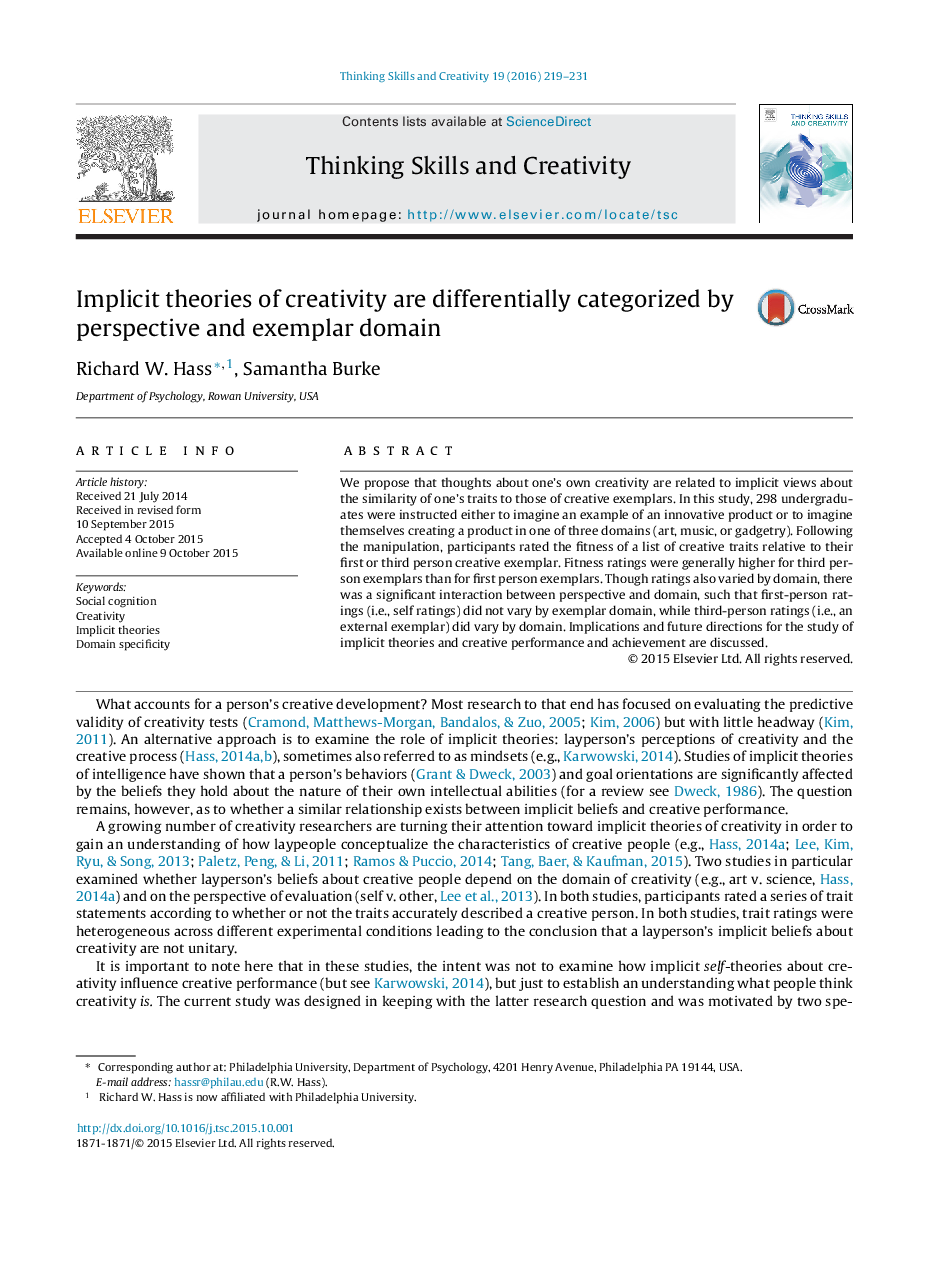| Article ID | Journal | Published Year | Pages | File Type |
|---|---|---|---|---|
| 375586 | Thinking Skills and Creativity | 2016 | 13 Pages |
•We examined how people’s conceptions of creativity differ by domain and by perspective.•Participants imagined an existing creative product, or imagined themselves creating a new product.•Participants were randomly assigned to imagine a product from the domain of art, music, or gadgetry.•Results show that when people rate themselves on creative traits following imaging creating something, their ratings do not reflect domain specificity.•However, third-person ratings do reflect domain specificity.
We propose that thoughts about one's own creativity are related to implicit views about the similarity of one’s traits to those of creative exemplars. In this study, 298 undergraduates were instructed either to imagine an example of an innovative product or to imagine themselves creating a product in one of three domains (art, music, or gadgetry). Following the manipulation, participants rated the fitness of a list of creative traits relative to their first or third person creative exemplar. Fitness ratings were generally higher for third person exemplars than for first person exemplars. Though ratings also varied by domain, there was a significant interaction between perspective and domain, such that first-person ratings (i.e., self ratings) did not vary by exemplar domain, while third-person ratings (i.e., an external exemplar) did vary by domain. Implications and future directions for the study of implicit theories and creative performance and achievement are discussed.
